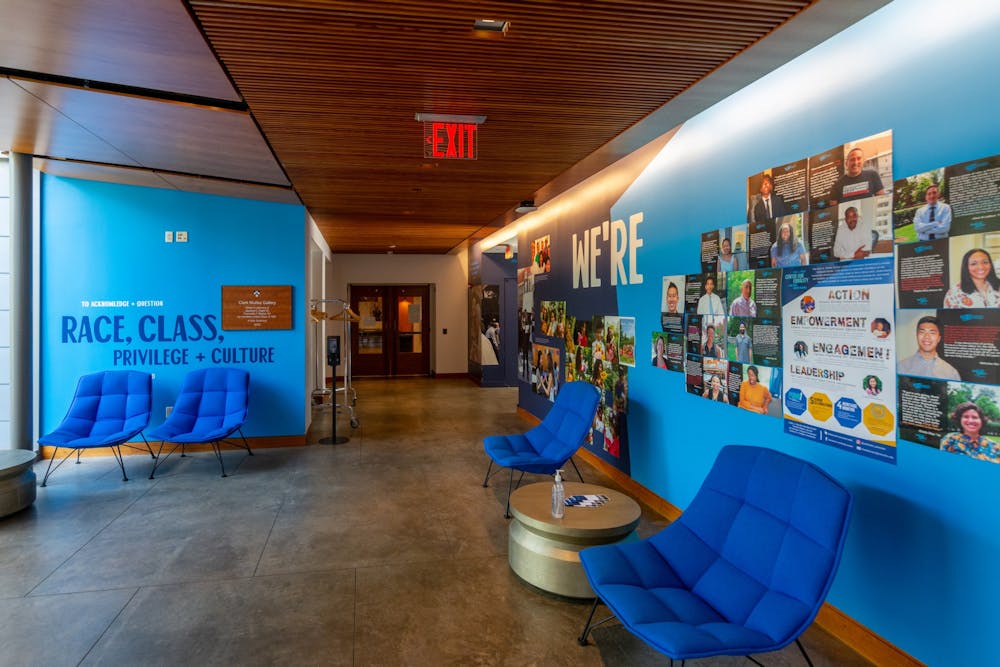Data released by the University earlier this semester showed that white students reported a slightly higher “sense of belonging” at Princeton than students from other groups, as did students who are categorized as “not low-income” and as “not first generation.” Black and Native students see the lowest scores. The trends also showed narrowing discrepancies, with scores for Hispanic, Asian, and international students being closer now than in the past few years.
Cultural and affinity student groups have undoubtedly played a crucial role in improving these discrepancies and helping students from diverse socioeconomic and cultural backgrounds improve their “sense of belonging.”
To hold such events and programming, cultural organizations rely on the sponsorship of relevant academic departments, the Carl. A Fields Center for Equality and Cultural Understanding (CAF), Office of the Dean of Undergraduate Students (ODUS), and alumni networks. Of these, CAF represents one of the most central sources for cultural and affinity student groups, given that it is the University’s cultural center.
The staff and leadership at CAF work hard to ensure all student organizations can have their events funded. However, the currently limited funding can make this task much more difficult than it would otherwise be, as organizations often have to reach out to a complicated network of cosponsors. To further improve students’ sense of belonging, the University should increase the funding available to cultural and affinity groups through CAF — which actually does the job well.
Adriana Alvarado ’25, the current co-president of The Princeton Latin American Student Association (PLASA), described to me the intricacies of this difficult funding process for cultural organizations. “There’s a lot of cultural groups on campus. And CAF also has limited funding,” she said. “They can’t give PLASA all the funding … because they have to be thoughtful about the other groups throughout the entire academic year.”
As a result, groups often have to reach out to different academic departments — each of which may have different processes for acquiring funding — or look for other co-sponsors with the help of CAF staff. This, Alvarado says, creates a situation that can be “overwhelming for cultural leaders.”
Madison McNeal-Martinis ’27, the current treasurer of Princeton’s Black Student Union (BSU), described the same issue of a decentralized process for acquiring funding from academic departments. She added that CAF works particularly well over other forms of funding, because their application process is straightforward and administered through the Student Activities Funding Engine (SAFE).
Similarly, BSU Executive Secretary Jaylee Witcher ’27 spoke to how more funding through CAF would benefit all cultural and affinity groups, as it would reduce the competition for limited funds from academic departments or the Office of the Vice President for Campus Life. Both Witcher and McNeal-Martinis mentioned the immense help they have received from CAF Education and Outreach Program Coordinator Jes Norman in navigating the complex funding process.
Student affinity groups and cultural organizations are essential to creating communities where students can freely and readily express their identities. This past semester, I had the opportunity to attend many events aimed at celebrating Latine culture and heritage through PLASA and CAF. These organizations can also help students develop cultural awareness about their peers’ identities, facilitating a more understanding campus community for all students. As a non-Muslim student, I have had the opportunity to interact with the Muslim Students’ Association and attend events to learn more about different aspects of Muslim culture and practices.
These events allowed me to form friendships with people who relate to my experiences and who make me feel like I truly belong here. Being able to build an altar with my friends for Día de los Muertos, play for Mariachi Los Tigres de Princeton, and enjoy traditional Salvadoran food at Princeton makes me feel like this place is a second home.
I share Alvarado’s sentiment that the ideal solution to this includes improving the resources already at hand to make the process less tedious for cultural and affinity groups. Increasing CAF funding is a first step in facilitating the accessibility to funding in a more centralized and efficient way that makes it easier for both the CAF staff and the cultural leaders. As Alvarado says: “it’s not about reinventing the wheel.”
In the coming years, the administration must re-evaluate its resources, carefully consider its successes and failures, and increase support for the programs that help students feel like they belong here and succeed academically. Princeton, support the people that help FGLI students find their own place on campus and succeed during their time here.

Jorge Reyes is a named opinion columnist for the ‘Prince.’ You can read his column, “No Tiger Left Behind,” every three weeks on Wednesday here. He intends to major in Chemistry and is from Louisville (Loo-uh-vul), KY. He can be reached at jr7982[at]princeton.edu.








